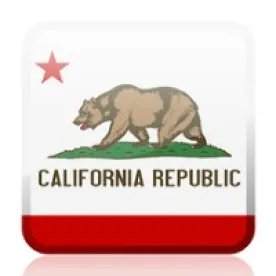A California appellate court recently upended a representative PAGA and class action settlement because the named plaintiff did not exhaust administrative remedies under PAGA because he failed to identify each separate theory of liability.
The case, which the Court of Appeal certified for publication, provides a guide for employers on how to challenge cases where a plaintiff has not exhausted a particular theory of liability. But the case also serves as a cautionary tale for employers looking to resolve successive cases with one settlement.
The named plaintiff in the case, Josue Uribe (“Uribe”), initially sought individual damages against his employer, Crown Building Maintenance Company (“Crown”) and included a cause of action under the Private Attorneys General Act (“PAGA”). He filed the requisite letter to the Labor and Workforce Development Agency (“LWDA”), identifying his employer’s alleged failure to reimburse business expenses. In the LWDA letter, he mentioned expenses “for purchasing slip resistant shoes and maintaining his uniform,” that were not reimbursed.
However, in a parallel case against Crown, a different employee, Isabel Garibay (“Garibay”), had previously filed a class action with a PAGA cause of action against Crown that included a claim for failure to reimburse – but for cell phone expenses. Uribe’s letter to the LWDA never mentioned cell phone expenses and only focused on reimbursement for shoes and his uniform.
Ultimately, Uribe and Crown entered into a settlement that purported to release claims, including a claim for unreimbursed cell phone use. The settlement was conditioned on Uribe filing an amended complaint converting his lawsuit into a class action and including unreimbursed cell phone costs as another basis for his claims.
Garibay intervened and sought to block the settlement. The Court of Appeal agreed with Garibay that Uribe’s letter to the LWDA failed to exhaust administrative remedies and the trial court should not have approved the settlement. The Court held the release, which included cell phone expenses, was overbroad.
The Court explained that the “plain meaning” of the facts and theories in the PAGA notice did not include cell phone expenses and, as a result, the notice was inadequate. A bare reference to a section of the labor code pertaining to reimbursement is “insufficient to preserve a PAGA claim,” according to the Court. Otherwise, the Court explained, “Uribe’s notice could be expanded beyond recognition to include “claims for tools, cleaning supplies, automobile or mileage expenses, and more.”
In addition, because Uribe and Crown did not include a severance clause in their agreement that would strike non-viable settlement terms, the Court of Appeal ruled that the settlement could not survive.
The takeaway for employers looking to settle parallel PAGA actions is to make sure that the LWDA letter is broad enough to cover all claims and, when in doubt, include a severance clause in the agreement.





 />i
/>i
